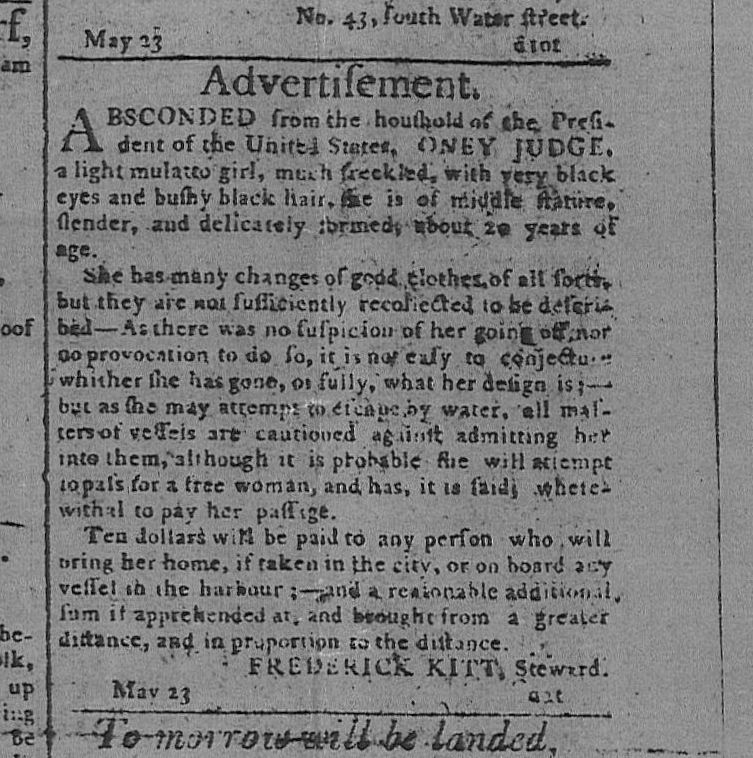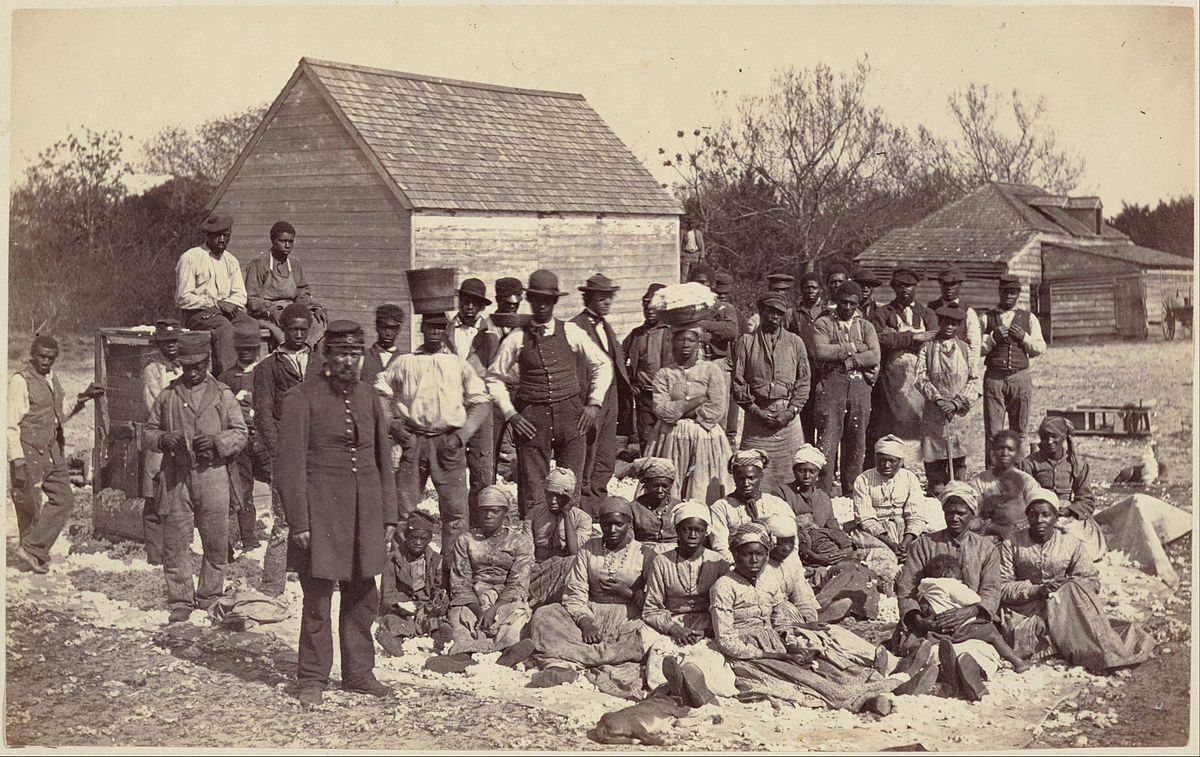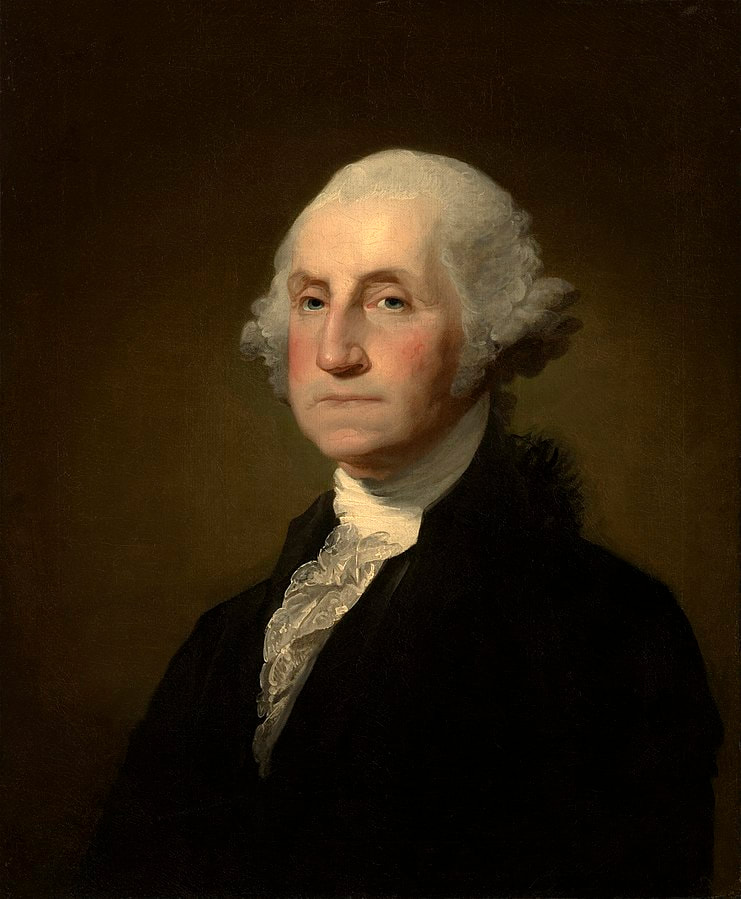Lesson 11
Her Name was Judge: One of George Washington's slaves wanted to be free. Here is her story.
Her Name was Judge: One of George Washington's slaves wanted to be free. Here is her story.
|
Ona Maria Judge was born at the most famous plantation in America, George Washington’s Mount Vernon. It was about 1773. Judge’s mother was black, enslaved, and a talented seamstress; her father was white and an indentured servant. When Ona (who was often called Oney) was 10 she was brought from the slave quarters to live in the mansion house, in part to be a playmate for Martha Washington’s granddaughter. Eventually she became a private servant to the First Lady, which means she took care of her clothes, fixed her hair, and did personal tasks.
In the world of slavery, she had it easy. But Ona had a mind and she wanted more. She wanted to be able to read and learn. She wanted to go to a church she could choose. She wanted to be free. The First President and his family moved to Philadelphia when that city was the nation’s capital. (The District of Columbia wasn’t ready.) Ona moved with them. That’s where she was when Martha Washington told her she planned to give her granddaughter a very useful wedding present. Ona was to be that present. Can you imagine someone giving you away? In Oney's case it meant she would be leaving her friends and family. Ona didn’t want to be a wedding present (and she wasn't fond of the granddaughter). She had friends in Philadelphia, she went to them for help. They helped her make plans. So, while the Washingtons were having a fancy dinner, Ona Judge walked out the door and just kept going. She had saved money to pay for her escape, she had packed her things; she was soon on a ship, the Nancy, sailing north. When the President and his wife discovered that Ona was gone, they were furious. They thought Ona was ungrateful and that they had treated her well. Washington, who had fought for freedom for his nation, didn’t get it. He had cheered those words, “all men are created equal.” But he didn’t seem to think they meant women or anyone who was enslaved. To him slaves were property, which means they were worth money and had no right to their own selves. Actually he may have known better, but he was a victim of the ideas of his time and of the place where he lived. Most of his friends were doing it--keeping slaves--so he rationalized evil action. (Have you ever used the excuse: Well, everyone else does it.) On May 24,1796 an advertisement appeared in The Philadelphia Gazette & Universal Daily Advertiser. It said: Absconded from the household of the President of the United States, ONEY JUDGE, a light mulatto girl, much freckled, with very black eyes and bushy hair. She is of middle stature, slender, and delicately formed, about 20 years of age. She has many changes of good clothes, of all sorts, but they are not sufficiently recollected to be described—As there was no suspicion of her going off, nor no provocation to do so, it is not easy to conjecture whither she has gone, or fully, what her design is; but as she may attempt to escape by water, all masters of vessels are cautioned against admitting her into them, although it is probable she will attempt to pass for a free woman, and has, it is said, wherewithal to pay her passage. Ten dollars will be paid to any person who will bring her home, if taken in the city, or on board any vessel in the harbour;—and a reasonable additional sum if apprehended at, and brought from a greater distance, and in proportion to the distance. The Nancy, piloted by Captain John Bowles, sailed to Portsmouth, New Hampshire. But even there, Ona Judge wasn’t safe. She was walking down a street in Portsmouth when a friend of Martha Washington’s granddaughter recognized her. It was the teenage daughter of Senator John Langdon. George Washington soon learned of Judge's whereabouts. The President wrote to Oliver Wolcott, Jr., the Secretary of the Treasury, and asked that she be captured and returned. Wolcott contacted Joseph Whipple, Portsmouth's collector of customs, and asked him to find Ona Judge. Whipple urged caution. He said that in New Hampshire news of an abduction could cause a riot by supporters of abolition. Whipple decided to talk to Ona Judge and see if she would return. She said she would if George and Martha Washington guaranteed that she would be freed when they died. “A thirst for compleat freedom…had been her only motive for absconding,” Wolcott explained to the president. |
These lessons are intended for your use at home. They are copyrighted by Joy Hakim and are not for commercial use or redistribution.
There’s more if you want to go farther with this story. The Fugitive Slave Act of 1793 had complicated things for runaway slaves and those who wished to help them. Something else: Oney Judge Staines was a “dower” slave. Legally that meant the Washingtons didn’t own her directly. Martha Washington's estate owned the slaves who came with Martha from her first marriage. Oney was descended from one of them.
* Further Reading: Check out this New York Times article on a recent book about Ona Judge and her story. |
George Washington wouldn’t agree to free Oney. The man who had fought for freedom for his nation couldn’t understand that a black woman might also want to be free. He wrote to Whipple:
“I regret that the attempt you made to restore the Girl (Oney Judge as she called herself while with us, and who, without the least provocation absconded from her Mistress) should have been attended with so little Success. To enter into such a compromise with her, as she suggested to you, is totally inadmissible, for reasons that must strike at first view: for however well-disposed I might be to a gradual abolition, or even to an entire emancipation of that description of People (if the latter was in itself practicable at this moment) it would neither be politic or just to reward unfaithfulness with a premature preference [of freedom]; and thereby discontent beforehand the minds of all her fellow-servants who by their steady attachments are far more deserving than herself of favor."
Whew, faithfulness to him was more important that equality for her (or for others like her). So, Ona Judge stayed in New Hampshire: there she learned to read and was able to go to church. She became a devout Christian. She married Jack Staines, a sailor, and they had three children. Then Staines died and Ona was left to raise their family with almost no income. It wasn’t easy. When asked if she was sorry she left the Washington’s (where as a house servant she had privileges few enslaved people had), she said, “No, I am free, and have, I trust been made a child of God by the means.”
In 1799 Washington wrote a new will saying that all his slaves were to be freed after he and his wife died. Then he directed that any very old or very young slaves were to be taken care of if they couldn't care for themselves in freedom. He said young slaves were to be taught to read and write and helped to find a "suitable occupation."
“I regret that the attempt you made to restore the Girl (Oney Judge as she called herself while with us, and who, without the least provocation absconded from her Mistress) should have been attended with so little Success. To enter into such a compromise with her, as she suggested to you, is totally inadmissible, for reasons that must strike at first view: for however well-disposed I might be to a gradual abolition, or even to an entire emancipation of that description of People (if the latter was in itself practicable at this moment) it would neither be politic or just to reward unfaithfulness with a premature preference [of freedom]; and thereby discontent beforehand the minds of all her fellow-servants who by their steady attachments are far more deserving than herself of favor."
Whew, faithfulness to him was more important that equality for her (or for others like her). So, Ona Judge stayed in New Hampshire: there she learned to read and was able to go to church. She became a devout Christian. She married Jack Staines, a sailor, and they had three children. Then Staines died and Ona was left to raise their family with almost no income. It wasn’t easy. When asked if she was sorry she left the Washington’s (where as a house servant she had privileges few enslaved people had), she said, “No, I am free, and have, I trust been made a child of God by the means.”
In 1799 Washington wrote a new will saying that all his slaves were to be freed after he and his wife died. Then he directed that any very old or very young slaves were to be taken care of if they couldn't care for themselves in freedom. He said young slaves were to be taught to read and write and helped to find a "suitable occupation."



